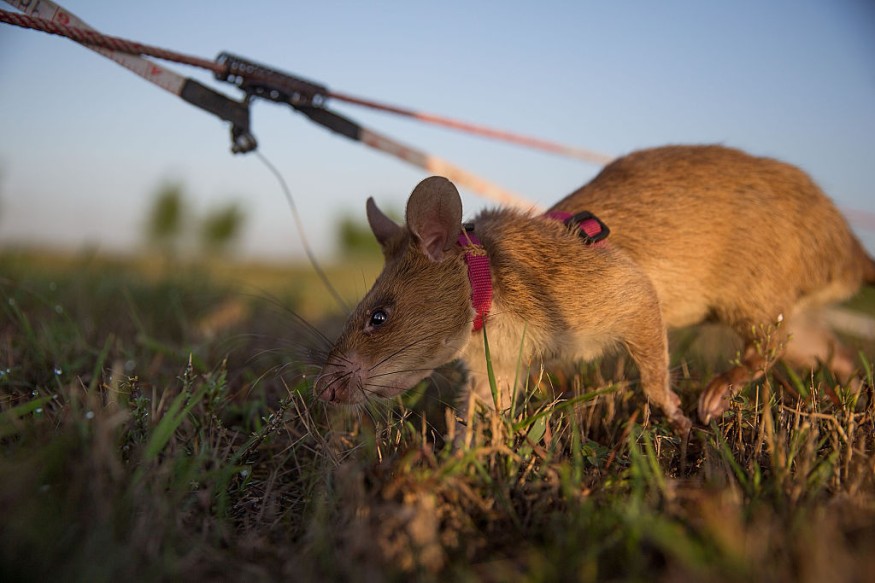Last year, news broke out about the People's Dispensary for Sick Animals (PDSA) awarding a gold medal to a new species for distinguished service. Since then the world has learned about Magawa, the heroic mine-detecting rat from Cambodia.
That is why it is only fitting that this year will also be the year of Magawa's retirement. By the time he was given the gold medal, this giant pouched rat had successfully detected over 70 landmines, along with discovering 30 instances of unexploded ordinances.
How African rats came to detect landmines

While Magawa certainly distinguished himself with his performance, he represents just one of the many generations of rats who had been trained to detect explosives since 1997. The successful use of this native African species owes itself to APOPO, a Belgian non-profit organization that researches how the rat's sharp and intelligent sense of smell can be trained to detect everything from bombs to even tuberculosis in patients.
Like many rodent species, the African giant pouched rat is easily raised and responds very well to training. Its sense of smell has been proven to outmatch even some of the best of their dog breed counterparts. And unlike larger animals, the rats are light enough that they can avoid triggering any mine they come across.
According to multiple reports, these heroic rats can clear at least 2000 square feet within less than 20 minutes. Whereas more traditional mine sweeping methods would take days and weeks, much of that time has been dramatically reduced all thanks to their sharp, little noses.
The tragic legacy of landmines in developing nations
Magawa's retirement is also meant to highlight the fact that landmines and unexploded ordinances are still a very real threat to many poor communities in the developing world.
For instance, it took Mozambique at least two decades to clear its land of mines after a series of civil wars and military unrest. These rats were just one big part of an even bigger effort to clear the land so that communities can begin farming and constructing much needed infrastructure.
Today, Cambodia is still in the midst of the same tribulation. Not only did they suffer a spillover of the Vietnam War, they are also recovering from the regime of the Khmer Rouge. This has resulted in countless landmines and other dormant explosives threatening the safety of rural villages (including some located in precious world heritage sites)
And while landmine-related accidents and deaths have decreased dramatically around the world, the Southeast Asian nation remains an outlier. It was estimated that there remains anywhere between six to ten millions mines still out there lying buried in former warzones. And since the 1970s, these mines have killed over 60,000 civilians while leaving more traumatized and permanently disabled.
APOPO's HeroRATs project is just one of many non-profit organizations continuously working to maintain awareness of this increasingly overlooked threat in countries struggling to get back on their feet after years of conflict. But hopefully, with the help of animal heroes like Magawa, they can finally put that turbulent past behind them.
© 2025 NatureWorldNews.com All rights reserved. Do not reproduce without permission.





